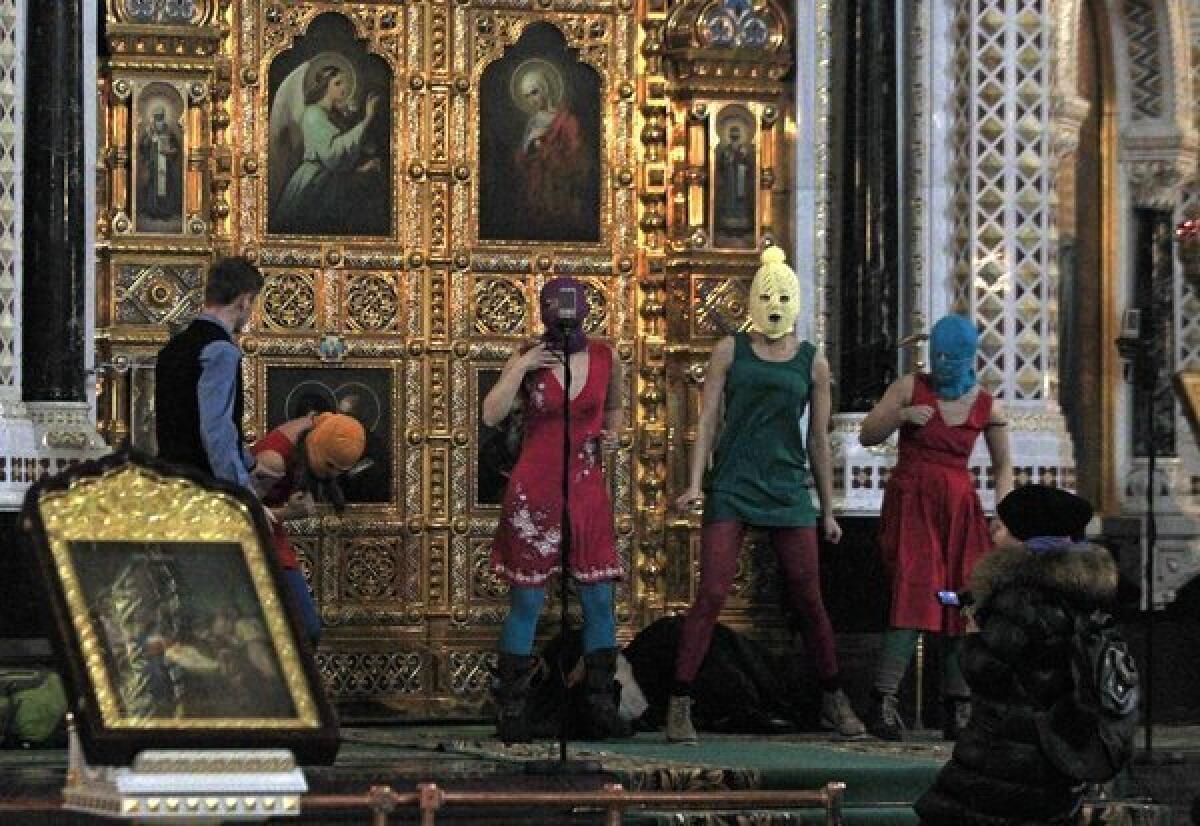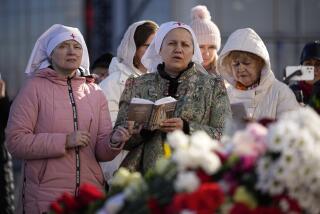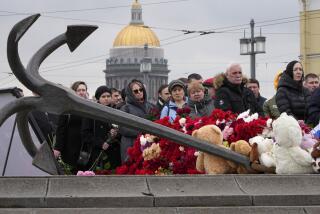Russian court deems ‘punk prayer’ video extremist

Two members of Pussy Riot remain imprisoned for their defiant “punk prayer” at a Moscow cathedral. Now the video of their protest against Vladimir Putin could be cut off from Russia as well, after a Moscow court deemed footage of their punk performance “extremist.”
The ruling handed down Thursday by a Moscow court could soon require Russian Internet providers to block access to the video, Russian news outlets reported. The ban will go into effect after a brief period if the court ruling isn’t appealed.
The condemned video captures five members of the punk collective dancing and shouting at the altar of a Moscow cathedral in a defiant performance it called “Mother of God, Drive Putin Out.” Music was added to the video afterward.
The punk protest led three members of Pussy Riot to be convicted in August of “hooliganism motivated by religious hatred.” One of the band members was later freed, but two are serving two-year sentences in remote prison colonies.
While many Russians found the protest distasteful, the case grabbed international attention and was slammed by rights groups as part of a widening government crackdown on dissent.
During the Thursday hearing, the judge read out a letter from the Russian Institute for Cultural Research, which deemed that the video contained “underlying calls” for “the organization of mass riots, such as the Occupy Wall Street movement or the Arab Spring,” the Russian Legal Information Agency wrote in its live coverage of the hearing.
On top of that, the judge said “religious feelings were totally offended,” the agency wrote.
Freed band member Yekaterina Samutsevich attended the Thursday hearing and told reporters she would try to contest the ruling, though the court did not recognize her as an interested party in the case, Interfax news agency reported. Samutsevich also said she would try to register the videos on foreign domains so that Russians could continue watching them.
The Russian extremism law is supposed to target terrorist groups, but free-speech advocates argue that the government uses the “intentionally vague” law as a cudgel against dissent.
ALSO:
Syria cut off from the Internet, activists and monitors report
British judge urges new press regulator due to hacking scandal
French court throws out Continental conviction in Concorde crash
More to Read
Start your day right
Sign up for Essential California for news, features and recommendations from the L.A. Times and beyond in your inbox six days a week.
You may occasionally receive promotional content from the Los Angeles Times.






